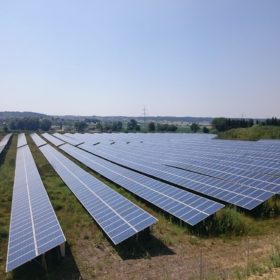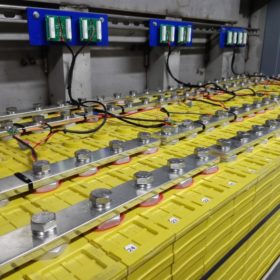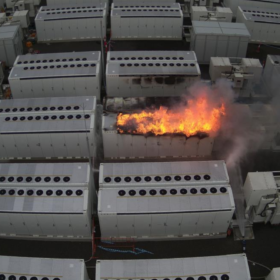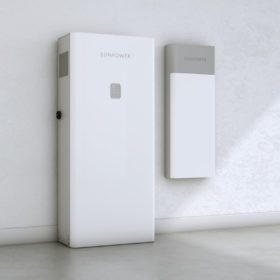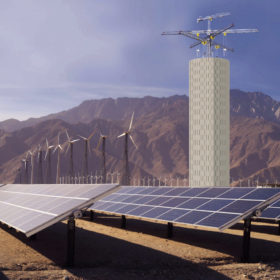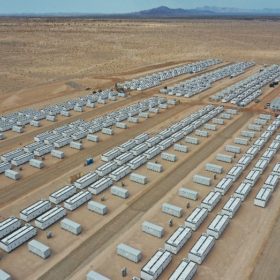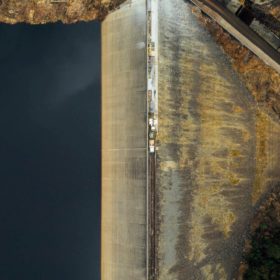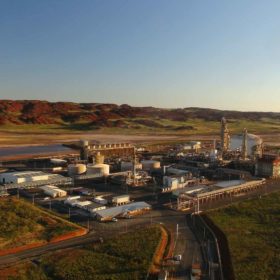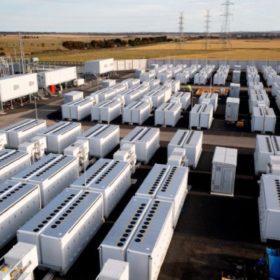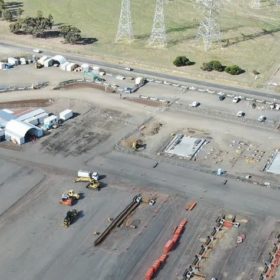IRENA highlights solar critical to ASEAN energy transition
Indonesia will have to get to work installing more than 24 GW of solar this year – and every year – if the region is to achieve the 2.1 TW to 2.4 TW of photovoltaics the International Renewable Energy Agency has estimated it will require to achieve a net zero carbon energy system by 2050.
Taiwanese battery maker targets NT for manufacturing plant
The Northern Territory government has signed an agreement with Taiwanese battery company Aleees and Western Australia-based miner Avenira to develop a battery cathode manufacturing plant in Darwin.
Fire at PG&E’s Tesla battery in California is now under control
A Tesla Megapack battery caught fire at PG&E’s Elkhorn large-scale battery storage facility in Monterey County, California, in the early hours of Sept. 21. The fire was brought fully under control by the late afternoon, and its cause is under investigation.
Sunpower launches two new batteries for residential applications
The two batteries have a storage capacity of 13 and 19.5 kWh, respectively. Both lithium-ion systems use LiFePO4 as the cathode material and have a round-trip efficiency of over 86%.
Energy Vault to deploy 2 GWh of gravity storage in China
Energy Vault’s EVx storage system is comparable to pumped hydro, using grid-scale renewable energy when supply is abundant to drive motors and raise 30-ton blocks on a six-arm crane tower, rather than water, up to a height. When power needs to be discharged back to the grid, the blocks are lowered, harvesting the kinetic energy.
New grid-scale LFP battery from Canadian Solar
Solar PV technology manufacturer Canadian Solar plans to quadruple its battery manufacturing capacity by the end of 2023. A part of that strategy is a new 2.8 MWh lithium-ferro phosphate battery which will be unveiled at the RE+ conference in California this week.
Pumped hydro storage takes shape in the Philippines
Prime Infra recently acquired a 500 MW pumped storage hydropower project in Rizal province in the Philippines. The company is also developing a 1.4 GW facility in the country.
Yara confirms construction of Pilbara green hydrogen plant to begin in weeks
Construction of a large-scale solar-powered green hydrogen and ammonia development in Western Australia will begin next month with ammonia producer Yara and the Australian arm of French renewables giant Engie announcing on Friday the final investment decision on the $87.1 million project.
NSW seeks to smooth path for 700 MW/1400 MWh super battery
The New South Wales government has moved to fast track the development of the 700 MW/1400 MWh Waratah Super Battery as it looks to shore up a reliable energy supply ahead of the impending closure of the country’s biggest coal generator.
Neoen Australia plans 4 GWh big battery for WA
The Australian arm of French renewable energy developer Neoen has lodged an application to build a 1000 MW /4000 MWh big battery in Western Australia as the state government looks to ramp up energy storage capacity to support its planned transition from coal-fired power to renewables.
